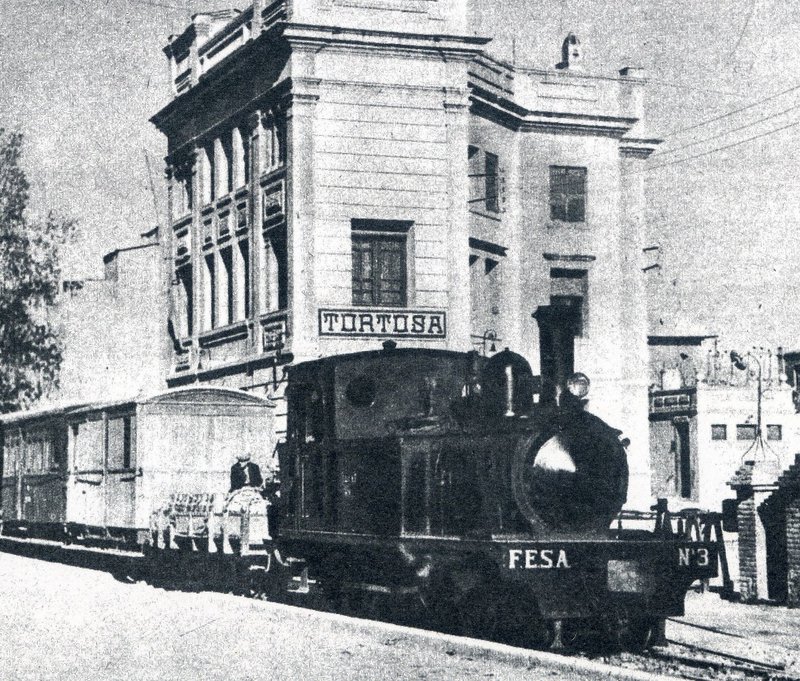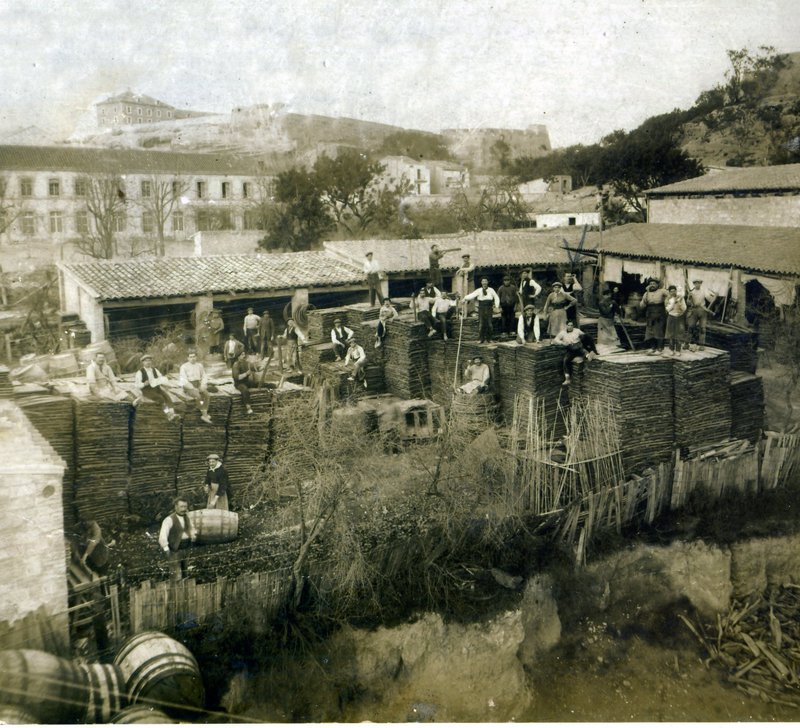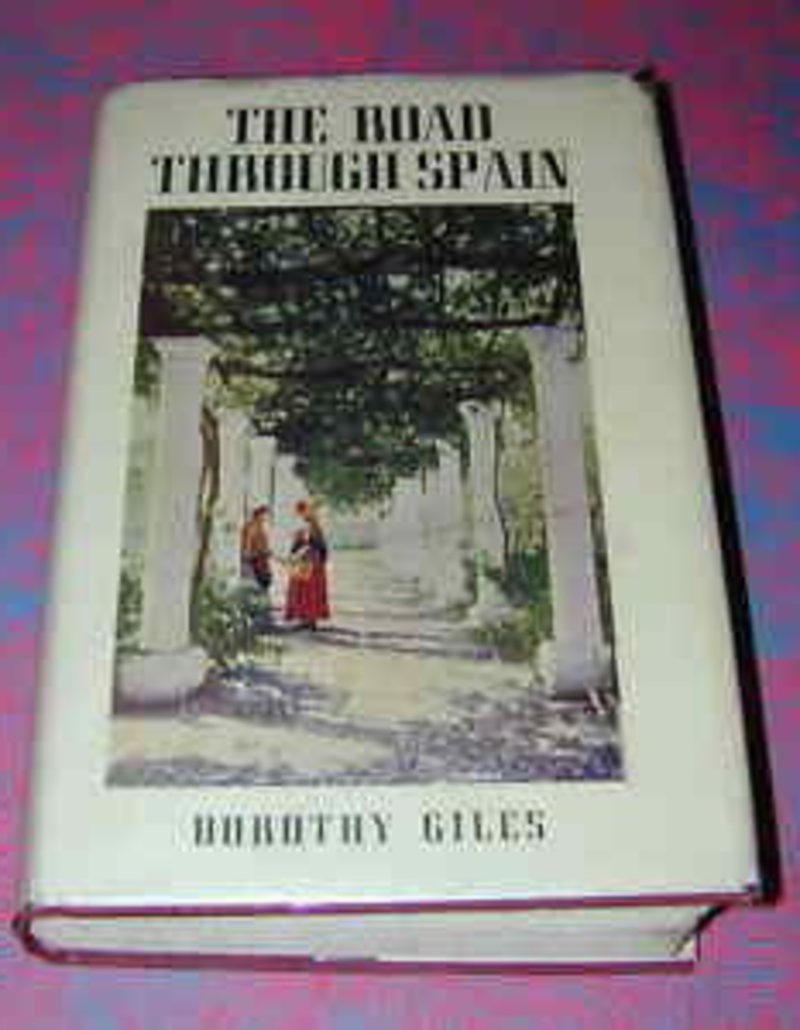Land of the Moor
A motoring voyager incites as much curiosity for her journey as she has herself for the city of Vinaròs
Women Travellers in Catalan Lands
After the red and brown and ochre of Tortosa and Amposta, San Carlos de la Rapita, lying close by the sea road, came as a sharp, white surprise. White, low walls supporting flat roofs, azoteas, white sailcloth curtains flapping in the open doorways where the women sat torpidly on their squat black chairs, and the babies and chickens and lean dogs played contentedly in the warm dust. The hand of the Moor was over all. We had run away from the mist and the threat of storm when we left the mountains the other side of the Ebro, here the sun shone blindingly on the white walls. The lanes between the houses were grateful wells of blue shadow. Nowhere was there a spear of green. The men, lounging before the village café wore black kerchiefs bound tightly about their dark brows, two ends brought forward and twisted in a knot as old as Islam, the third hanging down behind to shield the back of the neck from the sun. The faces under those head kerchiefs were the color of old Spanish leather, seamed and weathered by the wind and the sun and the vagaries of the sea. They were like the pirates of Penzance, their hands thrust swaggeringly into the tops of their fajas, wine red, and magenta and peacock blue.
Over the house roofs on the sea side rose the tangled masts and spars of the fishing fleet moored under the wall. All that one had ever heard or thought or read of […] was in that one short street, before the sign TRAVESIA with its decisive arrow pointed us out and on to Vinaroz.
Vinaroz, what a harvest is compact in those three syllables! Vin—aroz, wine and rice. Not the pallid cereal grains that we know, but the succulent paella of Valencia, heavy with oil, and golden with saffron, and crimson with strips of pepper and whole shrimps and tiny crabs, and salt with all manner of weird sea creatures in fluted shells; served smoking hot, and eaten with the strong, hard, white bread that Spanish bakers know so well how to make. And this washed down with the rich dark wine of the region that is almost as black as ink. It was from over-indulgence in this dish, here at Vinaroz, that the Duke of Vendome, grandson of the Grand Monarch, died. Philip V, who owed him his throne, had the body interred among the princes of Spain in the Escorial, whether in gratitude or warning, is left to the visitor's imagination. […]
The streets of Vinaroz were strewn with olive branches. Our tires crushed them as we passed. The bishop of Tortosa had gone by in triumphal procession that morning.
Vinaroz was our entrance to the province of Valencia, the province second only to Granada in the heart of the Moor. Twice they took it, and twice they lost it; once to the Cid, and the second and last time to Jaime the Conquistador. Behind us lay the essential hardness that is Cataluña. Before us stretched the languorous, fecund land of Valence.
We ended our day's journey at Benicarló, another white town with streets leading down to the sea, past open doors in which hung curtains of knotted cord, like fish nets, and ornamented with heavy, crocheted lace. Though the meshes were as wide as those of the seines drying on the rocks by the shore, the dark rooms behind them were completely concealed from the eyes of the passers-by, while those within could look out on the street, unseen. There were furtive movements and rustlings and lowered voices behind those deceptive hangings when we walked about the village in the late afternoon sun. The word was cried up and down the lanes that two foreign women… alone… in a coche Ford, had arrived at Fonda La Rosa and intended to spend the night. [....]
The rustle and the whispering were not confined behind the house curtains. Spanish curiosity broke through these and swept up the streets and filled the room where we were waiting for the eight o'clock dinner hour. We held a sort of reception, sitting in the rush bottom chairs that stood in opposing rows around the walls of the fonda's entrance room. [....]
“Where were we going?”
Could I give them the truth—that we were knight errants of the road, seeking romance in market places and patios, at crossroads and in encounters such as this, hoping if our luck held, to find a misplaced sense of humor at the journey's end, like the pot of gold at the foot of the rainbow?
Dorothy Giles
Once an amusement that only wealthy Americans could afford, by the mid and late 1920s “motoring” in Europe also fell within the reach of adventurous middle-class drivers. The steady opening of new roads—paved or otherwise—allowing access to still unspoilt sights of the Old World did the rest. Dorothy Giles (1892-1960) seized the opportunity and decided to drive her own Ford across the Iberian Peninsula with a friend in 1928. A native of Cold Spring, on the banks of New York's Hudson River, Giles had studied art and languages at Cathedral of St. Mary High School, in Garden City, Long Island. Prior to her Spanish road trip, she had published Adventures in Brotherhood (1924), about race relations in America, and The Little Kitchen Garden (1926), on home grown food and cooking, but she is chiefly remembered for her two travel books, The Road through Spain (1929) and The Road Through Czechoslovakia (1930). The latter won her the Order of the White Lion, awarded by the first Czechoslovak President, Tomas Masaryk. Giles continued to write books on social and local contents together with articles on miscellaneous topics in magazines like Cosmopolitan, Forum and Century and Pall Mall Magazine. In The Road through Spain, the chronicle of a long journey started in Barcelona and finished in Vigo, Giles provides vivid impressions of the Catalan-speaking lands, from the Costa Brava down to Orihuela, including a side trip to Mallorca.






